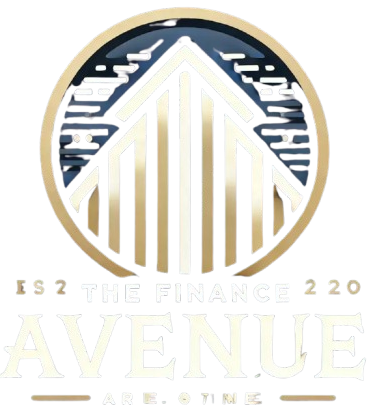Rent-to-Own Homes: How the Process Works
Category
Categories

Rent-to-Own Homes: How the Process Works
What to watch for and the steps and choices involved
While conventional mortgages are frequently used to achieve homeownership, there are alternative options available. Rent-to-own arrangements provide a solution for individuals who may face challenges in obtaining a mortgage upfront or making a down payment. Rather than following a traditional mortgage route, they opt for an agreement with a property owner to buy the house once the lease term concludes.
Understanding Rent-to-Own Agreements
If you lack the finances for a house down payment, achieving home ownership may seem challenging. Rent-to-own agreements offer a pathway for individuals to save towards a down payment while residing in a property they plan to purchase eventually.
In this arrangement, the seller provides you with the opportunity to buy the property at a later date. During this period, a portion of the rent you pay is set aside to assist you in covering your future down payment.
Essential Elements of Lease-to-Own Agreements
Lease-to-own agreements can differ based on the circumstances, but they generally consist of two primary components:
Types of Rent-to-Own Contracts
If you opt for a rent-to-own agreement, there are various types of contracts available for you to choose from.
Lease-Option Contracts
Opting for a lease-option contract allows you the flexibility to decide whether to purchase the house at the end of the agreed period. If you determine that the property does not meet your needs, there is no obligation to buy.
It is essential to understand that this type of contract typically includes conditions for maintaining your purchasing option. For instance, failure to make timely payments could result in losing the buying privilege.
Lease-Purchase Agreements
When entering into a lease-purchase agreement, you commit to purchasing the property once the lease term concludes. Failing to follow through on the purchase due to a change of heart or financial constraints may result in legal consequences.
Financial Aspects of Rent-to-Own Agreements
When entering into a rent-to-own agreement, it is crucial to examine the financial components of the deal.
Option Fee and Rent Payments
Rent-to-own agreements commonly involve an option fee, a specified amount paid to secure the option to buy the property. This fee, which is non-refundable, typically ranges from 2% to 7% of the property’s value.
Throughout the period of residence in the property before the actual purchase, the tenant is responsible for paying rent to the landlord. It’s essential to note that the rent amount may be higher as a portion of it goes towards accumulating funds for the future down payment.
Depending on the specific terms of the arrangement, it might be possible to use the non-refundable option fee towards the property’s purchase price.
Determining the Purchase Price
The agreement between you and the seller must include a purchase price, typically agreed upon at the start of the deal, which remains unaffected by any changes in the home’s value over time.
Some agreements may involve negotiating and finalizing the price once the lease period concludes.
Any funds accumulated from your rent payments can be used towards your down payment, while securing a mortgage is usually necessary to cover the remaining expenses.
Responsibilities and Care
When entering into a rent-to-own agreement, it is essential to grasp the distinctiveness of this arrangement compared to a standard lease. Make sure you are clear on your obligations and those of the property owner before finalizing any contract.
Tenant vs. Landlord Responsibilities
In a typical lease agreement, the landlord is typically responsible for handling all maintenance and repairs of the property, including in a rent-to-own scenario. However, in certain cases, such as when the occupant is also the prospective buyer of the property, they may take on the responsibility for maintenance and repairs.
Insurance and Additional Costs
Throughout the lease duration, you will not be the owner of the home. Instead of homeowners insurance, you will require renters insurance to ensure that your belongings are adequately protected. Once you buy the property, then a homeowners policy will be necessary.
Tenants and landlords must also agree on who will be responsible for property taxes, utilities, and any homeowners association (HOA) fees.
Advantages and Disadvantages
Knowing the advantages and disadvantages of rent-to-own agreements can assist you in determining if they are suitable for your situation.
Advantages of Rent-to-Own
Rent-to-own arrangements have their benefits for both tenants and landlords. Let’s explore the advantages of this alternative housing option.
Disadvantages and Dangers
Who Should Think About Rent-to-Own?
Rent-to-own could be a suitable choice for individuals who are not ready to buy a house outright. Evaluating your financial status and the current market conditions is crucial.
Ideal Candidates
Rent-to-own agreements present a viable option for individuals looking to achieve homeownership without the financial means for an initial down payment. This setup allows you to work towards accumulating the necessary funds gradually while residing in the desired property and paying rent.
Additionally, rent-to-own agreements cater to those in need of time to enhance their credit score, thereby increasing their eligibility for a mortgage in the future.
Market Factors to Consider
The state of the housing market can impact the appeal of such contracts. Take into account the duration of the contract and possible market fluctuations. By fixing a price at the contract’s onset, there is a chance of paying more than necessary in the future.
Conducting Proper Research and Addressing Legal Issues
It is essential to thoroughly research and address any legal considerations before entering into a rent-to-own agreement.
Contract Review and Legal Advice
It is recommended to consult with a real estate attorney before committing to a lease-purchase contract. Legal counsel can assist in comprehending your obligations and assessing the contract’s compliance with pertinent real estate and tax laws. Moreover, an attorney will verify that the contract specifies how your funds are being managed for the future down payment.
Property and Seller Evaluation
Ensuring your comfort with the property and seller is crucial before committing to a rent-to-own agreement.
Even though ownership is not immediate, it is essential to take precautions. Collaborate with the seller to arrange a home inspection to identify any potential issues the property may have before finalizing the purchase.
Verifying the seller’s trustworthiness and financial stability is vital. Confirm if property taxes are up to date and if the home is adequately insured. Consult with your real estate attorney for guidance on the relevant inquiries to make when evaluating a potential seller in a rent-to-own transaction.
Moreover, stay vigilant against possible rent-to-own scams. The Federal Trade Commission (FTC) cautions against fraudulent practices, such as sellers misrepresenting ownership of the property or properties with outstanding taxes.
The Essence of Rent-to-Own Agreements
A rent-to-own arrangement offers a pathway to homeownership for individuals facing challenges in affording a traditional down payment. It also serves as a beneficial option for those needing time to enhance their creditworthiness before seeking a mortgage.
Prior to committing to a rent-to-own contract, it is vital to comprehend your responsibilities within the agreement and assess any associated risks. Seeking guidance from a real estate attorney to inspect the contract can provide clarity before proceeding with your decision.
The Finance Avenue: Rent-to-Own Home Deals Explained
Rent-to-own agreements are becoming increasingly popular for those looking to eventually own a home. The Finance Avenue outlines how this unique arrangement works and what to consider before entering into such a deal.
Understanding Rent-to-Own Home Deals
Essentially, a rent-to-own agreement allows tenants to rent a property for a specific period with the option to purchase it at the end of the lease. During this time, a portion of the rent goes towards the property’s future purchase.
However, it’s crucial to understand the nuances and potential pitfalls of these agreements. The Finance Avenue highlights key factors such as the need for a legally binding contract, thorough inspections, and understanding the financial implications of this option.
What You Need to Know
The Finance Avenue stresses the importance of conducting due diligence before committing to a rent-to-own deal. This includes understanding the terms of the agreement, the property’s condition, and ensuring that you are financially prepared for homeownership in the future.
By providing valuable insights and considerations, The Finance Avenue aims to empower individuals with the knowledge needed to make informed decisions about rent-to-own home deals.



